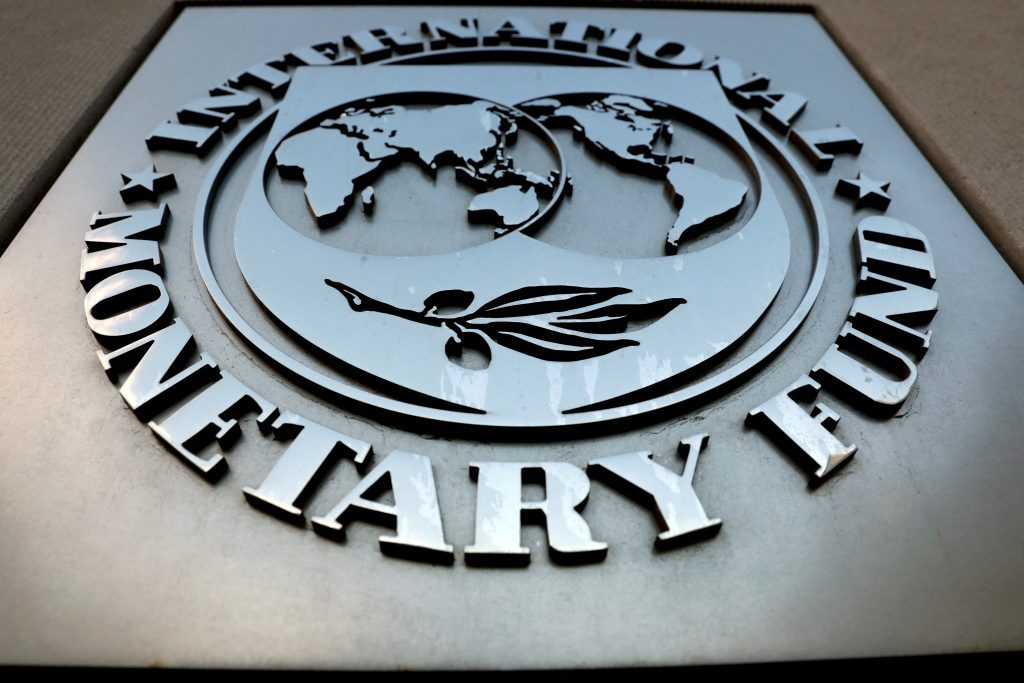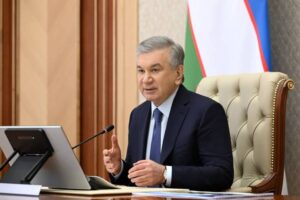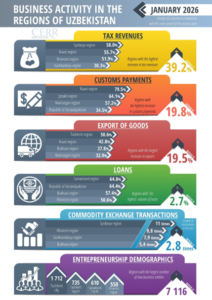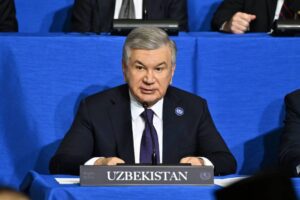Uzbekistan Advances Steadfastly in Economic Transformation: IMF

Tashkent, The Gulf Observer: The Executive Board of the International Monetary Fund (IMF) has concluded its Article IV consultation with the Republic of Uzbekistan, endorsing the Staff Appraisal on a lapse-of-time basis without a meeting.
The IMF’s statement highlighted that Uzbekistan’s economic growth has remained robust. While remittances returned to pre-2022 levels, expansionary fiscal policies, buoyant private consumption, and a surge in fixed investment propelled real GDP growth to 6 percent in 2023. This momentum continued into the first quarter of 2024, with growth reported at 6.2 percent year-over-year (yoy). Additionally, a high real policy rate and declining international food and energy prices helped reduce consumer price inflation from 12.3 percent (yoy) at the end of 2022 to 8.1 percent in April 2024.
Despite this growth, Uzbekistan’s current account deficit widened to 8.6 percent of GDP in 2023, compared to 3.5 percent in 2022. This was driven by increased imports of machinery and equipment, declining remittances, higher interest payments on foreign debt, and repatriation of earnings by foreign-owned enterprises, which overshadowed buoyant gold exports. International reserves decreased by US$1.2 billion in 2023 but remained substantial, covering close to nine months’ worth of imports as of end-April 2024.
The IMF’s outlook for Uzbekistan is broadly positive, supported by strong domestic demand and significant reforms, including energy price reforms and the privatization of state enterprises. Real GDP growth is projected to remain robust at 5.4 percent in 2024 and slightly increase to 5.5 percent in 2025. The current account deficit is expected to reduce through continued fiscal deficit reduction, moderated bank lending growth, and slowed import growth. Although inflation may temporarily rise by end-2024 due to increased energy prices, ongoing tight macroeconomic, macroprudential, and structural policies are anticipated to reduce inflation towards the Central Bank of Uzbekistan’s (CBU) target over the medium term.
External risks, such as geoeconomic spillovers, commodity price volatility, and a potential global slowdown, remain uncertainties. Domestically, risks include slower fiscal consolidation, weaker bank balance sheets, or contingent liabilities from state banks, state-owned enterprises (SOEs), and public-private partnerships (PPPs). On the upside, an acceleration of structural reforms, greater inflows of income and capital, or higher export prices could further improve the outlook.
The IMF commended Uzbekistan for its steadfast progress in transforming its economy. Despite challenges from the pandemic and geopolitical tensions, the country has achieved rapid growth and reductions in poverty. Continued reforms and strong domestic demand are expected to sustain this growth.
The IMF also emphasized the importance of planned fiscal policy adjustments to maintain robust public finances and support monetary policy in containing inflation. Key measures include broadening the tax base, modernizing the tax system, increasing public spending efficiency, and advancing pension reform for long-term fiscal sustainability.
Monetary policy should focus on further reducing inflation to the CBU’s target, with a high real policy rate and supportive fiscal and macro-prudential policies. The CBU should be prepared to adjust its policy rate if energy price reforms lead to broader price pressures.
Minimizing state involvement in the financial sector while strengthening financial sector supervision is crucial for sustainable financial deepening and stability. This includes modernizing state bank governance, expediting privatization efforts, and enhancing prudential supervision.
Sustained reform efforts are essential for making growth more sustainable, inclusive, and green. Accelerating structural reforms, reducing state intervention, and improving the business environment will boost economic efficiency and competitiveness. The government’s efforts towards WTO accession and measures to increase women’s labor participation and phase out energy subsidies are also vital.
Lastly, the IMF underlined the importance of continuing anti-corruption efforts and improving governance. Enacting laws on asset declaration, conflict of interests, and whistleblower protection, alongside measures to enhance the independence of prosecutors, judges, and the Chamber of Accounts, will improve accountability and public trust.
Overall, the IMF’s endorsement reflects confidence in Uzbekistan’s ongoing economic transformation and the government’s commitment to market-oriented reforms.


